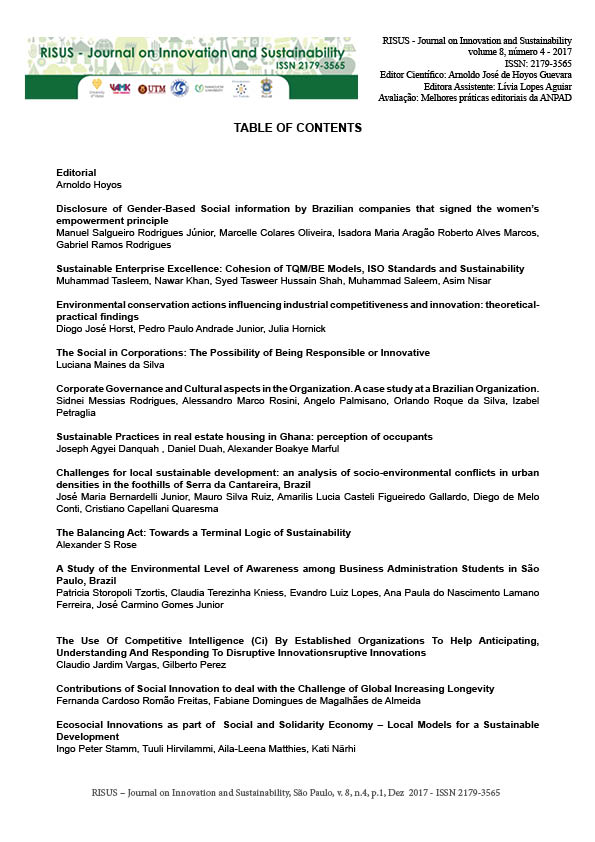THE USE OF COMPETITIVE INTELLIGENCE (CI) BY ESTABLISHED ORGANIZATIONS TO HELP ANTICIPATING, UNDERSTANDING AND RESPONDING TO DISRUPTIVE INNOVATIONSRUPTIVE INNOVATIONS
DOI:
https://doi.org/10.24212/2179-3565.2017v8i4p164-180Palabras clave:
Competitive Intelligence, Disruptive Innovation, Weak Signals.Resumen
Disruptive Innovations (DI) are those generated by new technologies that have the power to change the value proposition of a market and, even though they may begin appealing only to smaller clients segments. Eventually, they go upmarket and cause “disruption” challenging the leading established organizations. We believe that Competitive Intelligence (CI) can be used as a dynamic strategy and a structured process of acquisition, analysis, and dissemination of information and of knowledge creation to help these established organizations to better anticipate, understand and respond to the challenges of disruptive innovations in their industries. Through a theoretical essay based on a thorough literature review on the themes, we evaluated if and how IC can help these organizations. The study was justified mainly by the lack of previous works relating the two constructs (CI and DI), and we focused on the perspective of the established organization (incumbent) instead of the perspective of the disruptive companies (new entrants). We believe these discussions may benefit scholars in the fields of CI and Innovation and practitioners from different industries that are being or may be challenged in the future by this kind of innovation.
Descargas
Publicado
Número
Sección
Licencia
This Journal is licensed under a Creative Commons Attribution-Non Commercial-No Derivers 4.0 International license.
1.The author (s) authorize the publication of the article in the journal;
2.The author (s) warrant that the contribution is original and unpublished and is not in the process of being evaluated in other journal (s);
3. The journal is not responsible for the opinions, ideas and concepts emitted in the texts, as they are the sole responsibility of its author (s);
4. The editors are entitled to make textual adjustments and to adapt the articles to the standards of publication.


